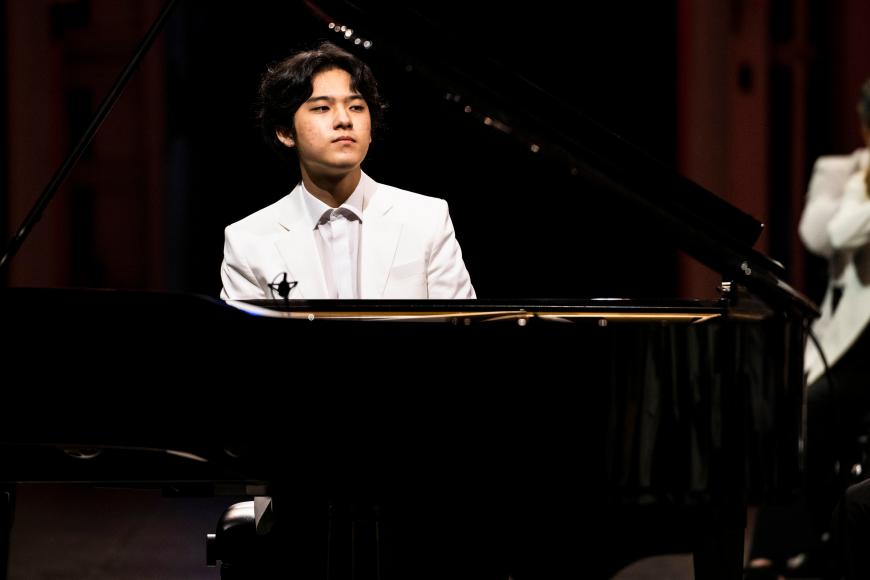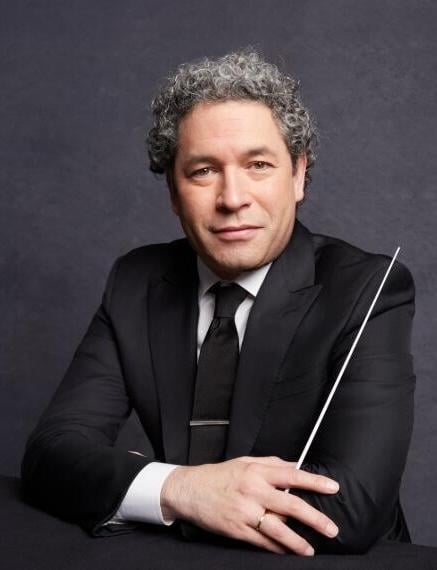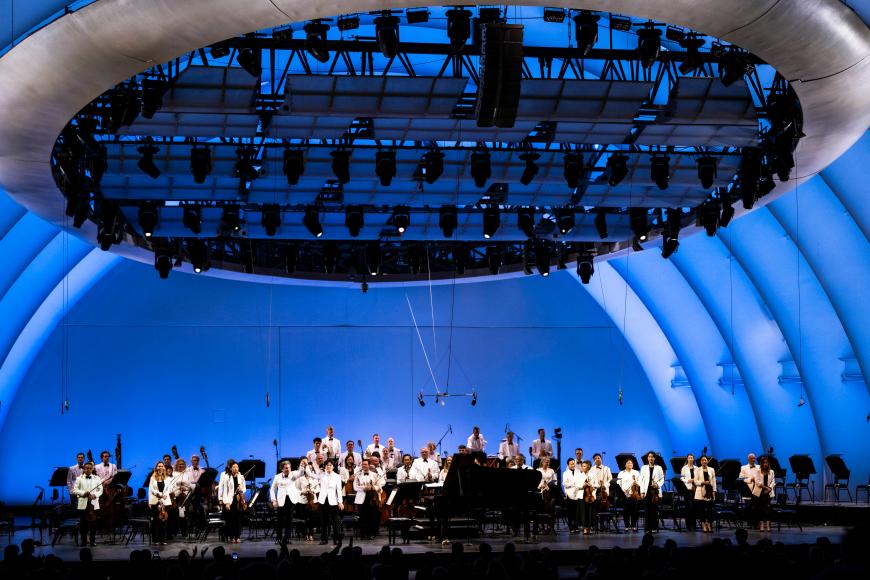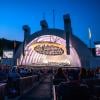
Here’s a new semi-mathematical equation for the day: Beethoven + Tchaikovsky + Dudamel + Lim = Sold-out event at Hollywood Bowl.
Well, not quite a sold-out crowd. A Los Angeles Philharmonic spokesperson said that the attendance count Thursday night (Aug. 29) was a little over 13,000 (out of 17,500 seats), although it looked like a lot more to this inveterate Bowl-goer. Nevertheless, it was still an extraordinary turnout on a weekday for a serious, no-compromise, solidly mainstream classical music concert in the great outdoors.
There were incentives for the people to come out in such numbers, starting with the young phenom piano star Yunchan Lim, along with the familiar, excitable yet comforting strains of Ludwig van Beethoven’s Piano Concerto No. 5 (“Emperor”) and Tchaikovsky’s Symphony No. 5. This was also Gustavo Dudamel’s first appearance at the Bowl this summer, with eight more to follow.
For those deep into the history of the onetime Venezuelan whiz-kid, now a slightly graying 43, it was a return to the scene of his 2005 North American debut, when he wowed the audience with the same Tchaikovsky symphony. There was no sense of routine in this performance, however, for Dudamel has always been one to take Tchaikovsky seriously, enthusiastically, and sometimes at encyclopedic length.

Though Dudamel’s approach to the Tchaikovsky Fifth was mostly consistent with his other live performances in L.A., it was a little freer in its fluctuations in tempo and a little faster in overall speed — at least in the first three movements. (For those who care, his Finale clocked in exactly the same time as his recording with the Simon Bolivar Symphony Orchestra, 12:04!).
The first movement accrued more nervous energy the further it went, and the central climax of the slow second movement was fierce enough to induce a few whoops from the crowd. The outer portions of the third movement were easygoing while the central section fluttered and fizzed. While the LA Phil’s playing seemed to fray somewhat in the pumped-up Finale, they more than made up for that in sheer dynamism as Dudamel whipped them up into a near-frenzy before quickly proceeding to the penultimate march sequence, barely leaving time for the designated pause. If there was this much excitement in his American debut 19 years ago, no wonder it made a big impression.
In the Beethoven concerto, Dudamel laid down the accompaniment for 20-year-old Yunchan Lim, the youngest contestant to win the gold medal at the Van Cliburn Competition (2022) and subsequently a fast-riser through the ranks of young professional pianists. Lim displayed an exceptionally wide dynamic range: his hands could either float over the quieter pages or stab away at the extroverted accents. He had the grandeur of the first movement introduction down, maintained a contemplative stillness in the Adagio — yet with every note clearly struck — and banged out the principal tune of the Rondo finale. Dudamel’s alternately energetic and graceful direction of the LA Phil turned out to be a good match for his soloist’s conception. A very satisfying performance resulted.
Lim was called to the stage for an encore, which turned out to be the Siciliano movement from J.S. Bach’s Flute Sonata No. 2, BWV 1031 in a transcription by Wilhelm Kempff.

As August turns to September, Dudamel’s appearances at the Bowl will range far and wide: two performances of a program that couples excerpts from Georges Bizet’s Carmen with music by Roberto Sierra and Camille Saint-Saëns, two encore collaborations with Mexican singer/songwriter Natalia Lafourcade, a Beethoven Ninth Symphony, and finally a succession of Viennese operetta excerpts featuring opera stars Diana Damrau and Jonas Kaufmann.
Oh, and over Labor Day Weekend, the orchestra accompanied two Marvel Studios film concerts that encompassed 23 different superhero films, plus fireworks, 3D mapping by XiteLabs, and lightup PixMob wristbands for the audience. Does the august New York Philharmonic know what they’re getting in their future music director?



